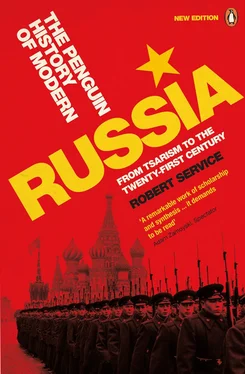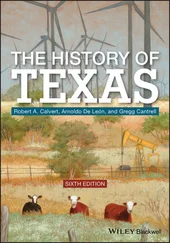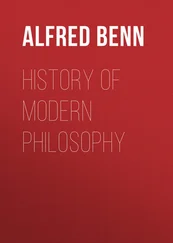inflation: in World War I, 28, 52, 55, 79; under Gorbachëv, 496; under Yeltsin, 516, 529; see also prices
‘informals’ ( neformaly ), 476
Ingushi, 367
Institute of the Economy of the World Economic System, 450
Institute of Red Professors, 142, 173
intelligentsia: in imperial Russia, 11; support for Bolsheviks, 94–5; repressed and controlled by Bolsheviks, 137–9, 200–201, 245; and Stalin’s scholarly pretensions, 319; and Khrushchëv’s policies, 364, 366; and Brezhnev, 380–82, 387–8; and Gorbachëv’s glasnost, 449–50; see also dissenters
Intermediate Nuclear Forces Treaty (1987), 465
International, Communist see Comintern
International, Second, 25
International, Socialist, 62
International Monetary Fund see IMF
Internationale (anthem), 282
Inter-Regional Group, 475–6
Iov, Archbishop of Kazan, 370
Iran, 258, 308, 312, 556
Iraq, 555
iron, 4, 78
Islam see Muslims
Israel, 317, 343
Italy: unrest in, 120; fascist methods in, 140; Mussolini seizes power, 171; communist party follows Moscow line, 295, 306, 311; and conference on Cominform, 308; communist party abandons Moscow, 398
Ivan IV, Tsar (‘the Terrible’), 206, 226, 319
Ivanovo, 73
Ivashko, Vladimir, 481, 490, 496
Izvestiya (newspaper), 133, 191, 194, 348
Japan: 1904–5 war with Russia, 3, 14; Imperial Russian disputes with, 24; and Russian civil war, 102, 312; signs Anti-Comintern Pact, 230; aggression against USSR, 231, 255, 257; and threat of World War II, 255; in World War II, 268, 270, 272; surrenders (1945), 273; post-war rehabilitation, 308; economic recovery, 322
Jaruzelski, General Wojciech, 411
jazz, 365
Jewish Autonomous Region, 317, 325
Jews: Russian nationalists’ hatred of, 12; in Pale of Settlement, 13; and anti-Semitism, 116, 201, 365, 416, 423, 458; Nazi extermination of, 222, 286; in October Revolution, 250; persecuted, 316–17; Stalin’s antipathy to, 324–5, 416; allowed to emigrate, 400; and dissenters, 414; after communism, 540, 557
Kádár, János, 343, 385, 387, 464
Kadets (Constitutional-Democratic Party): established, 14; decamp at dissolution of 1st Duma, 15–16; denounce Nicholas II’s autocracy, 15; agrarian reform policy, 20; and beginning of World War II, 25; and Nicholas II’s abdication, 33; in Provisional Government, 34–6, 45; oppose division of state, 45; walk out of cabinet (1917), 49; reject Kerenski’s overtures, 51; in Kerenski’s 3rd coalition, 57–8; suppressed by Bolsheviks, 93, 107; White commanders disdain, 116; excluded from politics, 161
Kafelnikov, Y., 539
Kaganovich, Lazar: follows Stalin’s policies, 171; Stalin attacks, 195; and rebuilding of Moscow, 204–5; and Party power, 211–15, 303; on Politburo commission, 220; and Stalin’s Party purges, 221 ; supports Stalin, 241, 252; shaves off beard, 246; opposes reform after Stalin’s death, 332; relations with Malenkov, 337; dismissed and posted to Sverdlovsk, 344–5; recommends Khrushchëv to Stalin, 348; reviled at 22nd Party Congress, 360; retirement, 477
Kaganovich, Moisei, 243
Kalinin, Mikhail, 142, 219
Kaliningrad ( formerly Königsberg), 306
‘Kalinka’ (song), 530
Kalmyks, 367
Kamenev, Lev: favours co-operation with Mensheviks, 47; imprisoned (1917), 50; opposes Lenin’s plan to seize power, 60; relations with Lenin, 72; scepticism over Bolsheviks’ continuing support, 81 Jewishness, 85, 201; administrative agreement with colleagues, 110; in Politburo, 112, 151, 160; supports NEP, 125; Lenin criticizes, 152; disagreements with Lenin, 153; edits Lenin’s works, 154; and succession to Lenin, 154–5, 157–8; attacks Trotski, 156; in United Opposition, 160–61, 164; suppressed, 161; expelled from Party and re-admitted, 162, 188; tried and sentenced, 215–16; shot, 218
Kapitsa, Pëtr, 247, 573
Kaplan, Fanya, 107
Karachai, 367
Karaganda, 364, 472
Karelia: demands recognition of independence, 490, 521
Karlovy Vary (Czechoslovakia), 320
Kasparov, Garry, 557, 559
Kasyanov, Mikhail, 551, 569
Kataev, Valentin, 248
Katushev, Konstantin, 404
Kazakhstan: nationalism, 131, 391; population victimized, 201–2; Soviet Republic formed, 207; deportees settled in, 225, 276, 300, 368; Khrushchëv advocates agricultural development, 332, 338, 351–2, 379; party leadership replaced, 338; effects of nuclear testing in, 359; nationalist resurgence, 456, 458; scandals in, 456; Russians in, 458, 520; strikes, 472; non-cooperation with State Committee for the Emergency Situation, 503; joins Commonwealth of Independent States, 506
Kazan, 106
Kemerovo (Kuzbass), 472
Kemerovo coal-mine, 218
Kennedy, John F., 353–4, 374
Kerenski, Alexander: co-operation with other parties, 30 ; in Provisional Government, 33, 36, 49; heads Provisional Government, 50–54, 57; loses army support, 54; and social disruption, 56; in Pre-Parliament, 58; and Lenin’s bid for power, 59; and government collapse, 60; overthrown in October Revolution, 62, 67; escapes from Winter Palace, 65; in newsreels, 73; and promised elections, 74 KGB (Committee of State Security): and Cheka, 69; formed, 334; and Khrushchëv’s speech against Stalin, 341; unmentioned in Khrushchëv’s programme, 361, 363; Russians dominate, 367; and Orthodox Church, 369; repressive methods and acts, 382, 412, 414, 420; reports on popular opinion, 418; relaxes under Gorbachëv, 480
Khakamada, Irina, 553
Khalkhin-Gol, 255, 267
Kharitonov, Nikolai, 553
Kharkov, 73, 266–7
Khasan, Lake, battle of (1938), 231, 255
Khasbulatov, Ruslan, 495, 500, 512, 515–16, 521–5
Khataevich, M.M., 237
Khlysty (religious sect), 10
Khlystun, Oleg, 534
Khodorkovski, Mikhail, 550, 561
Khrennikov, Tikhon, 319
Khrushchëv, Nikita: supporters, 199, 450; and Great Terror, 223, 340, 348; Stalin admits trusting nobody to, 232; Stalin promotes, 241–2; on impending World War II, 259; on Stalin’s behaviour in World War II, 263–4; Stalin humiliates, 265; reforms, 293, 355–60, 372–3, 409; and agricultural reforms, 302, 320, 347, 349–51, 401–2; position and status, 303; and Stalin’s xenophobia, 316; on need for ‘vigilance’, 326; offices and policies after Stalin’s death, 332–3, 335–8, 346–7; in plot against Beria, 333–5; conflict with Malenkov, 335–7; denounces Stalin at 20th Party Congress, 338–42, 344, 360, 436; and Hungarian rising, 343–4; criticized, 344; prevails over opponents, 344–5; administration, 346–7, 349–55, 550; behaviour, 346, 349; personal publicity, 347–8; background and career, 348, 555; foreign policy, 352–4, 373–4, 399; overseas visits, 353, 376; achievements, 354–7, 375; programme of communism, 356, 360–63, 372, 405–6; and arts, 364–6, 416; anti-religion campaign, 369–70; antagonizes officials, 370–71, 375; enjoys luxuries, 371; repressive measures, 371–2; Party hostility to, 372–3, 375; and building of Berlin Wall, 373–4; and Cuban missile crisis, 374–5; contradictions and eccentricities, 375, 392; conspiracy against and ousting, 376–8, 385; in retirement, 388; in Brezhnev’s memoirs,
404; and dissenters,
413; promotes Andropov,
429; and public debate, 448
Kichko, T.: Judaism without Veneer , 423
Kiel naval garrison, 81
Kiev, 40, 49, 75, 120, 261, 264, 296, 364, 367
Kim Il-Sung, 312
Kirgiz (Kazakh) Republic: formed, 115
Kirienko, Sergei, 530, 535
Kirov, Sergei, 160, 213–15, 217, 340
Kissinger, Henry, 399
Klebanov, Vladimir, 414
Klub Perestroika, 476
Knorin, V.G. and others: The History of the All-Union Communist Party: A Short Course , 237–8, 249
Читать дальше












